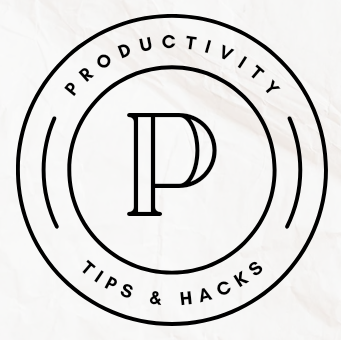
Being mindful and meditating often goes hand in hand. In this post, I am going to touch on the benefits of mindfulness and mediation in our daily lives as well as how practising them can lead productivity.
Mindfulness and meditation aren’t new kids on the block.
They have roots that reach back thousands of years in ancient practices from Buddhism, Hinduism, and other traditions.
Even though the modern take has stripped away some of the religious aspects, the core ideas are still about finding peace and clarity.
When you break it down, mindfulness and meditation offer a way to hit pause, take a breath, and reset the brain.
It’s not just for monks on mountaintops; it’s for everyday folks trying to juggle everything life throws at them.
What Is Mindfulness? How Much Do You Know About It?
Mindfulness might sound like some trendy buzzword, but it’s got some real history and pretty straightforward principles.
At its core, mindfulness is all about being present.
It’s paying full attention to the here and now instead of drifting into the past or worrying about the future.
Think of mindfulness as a way to train your mind.
You’re teaching yourself to notice and focus on what’s happening as it happens NOW.
This is important because we often lose track of our present situation as we are constantly revisiting past issues or worrying unnecessarily about the future, both of which are not helpful or productive at all!
The Benefits of Mindfulness – A Complete List!
Mindfulness works wonders for self-awareness and your emotional regulation.
When you’re more in tune with yourself, it becomes easier to manage your emotions instead of letting them boil over and eventually take control of you.
Being able to recognize and label feelings as they arise is important.
It helps in reducing emotional outbursts and keeps things cool.
In this way, you will be able to handle situations more calmly and effectively.
Stress reduction and anxiety management might be one of the most talked-about benefits of mindfulness, and for good reasons.
Regular mindfulness practice lowers the levels of cortisol, the stress hormone, in your body.
It’s like having a built-in stress-busting tool you can access anytime, anywhere!
Improved mental clarity and focus are also some more advantages of being mindful.
When you’re not constantly distracted by racing thoughts, your brain functions better.
It’s easier to concentrate, make decisions, and get stuff done more efficiently.
Another benefit of being mindful is it helps you to build up resilience.
Practicing mindfulness can boost your ability to bounce back from tough situations.
It cultivates a mindset that looks at challenges as opportunities rather than setbacks.
You will find yourself more mentally equipped to handle whatever situations which come your way.
Finally, mindfulness has tangible benefits for your physical health too.
Practices like mindful breathing and body scanning can lower blood pressure and improve sleep quality.
The mind-body connection is real, and nurturing mental well-being often leads to feeling better physically too.
What Is Meditation – In Simple Terms.
Think of meditation as kind of the gym for your mind.
Different styles of meditation can help you get into a mindful state.
There are tons of ways to meditate – from simple breathing exercises to more structured practices like Transcendental Meditation or Mindfulness-Based Stress Reduction (MBSR).
The Role of Meditation in Daily Life – A Bundle Of Benefits!
Many people have this misconception that it is a must to sit cross-legged for hours when you meditate. Well… not exactly…
It’s about finding what works for you.
Some folks prefer morning meditation to set a calm tone for the day while others might find evening sessions help them unwind before bed.
There are many different techniques of meditations, and it’s worth experimenting to see what clicks.
You might like guided meditations where someone talks you through the process.
Or maybe you’re into mantra meditation, repeating a word or phrase to focus your mind.
There’s also mindful breathing, focusing on your inhale and exhale, or even walking meditations if sitting still isn’t your thing.
Meditation isn’t just a one-and-done deal.
The benefits stack up the more consistently you practice.
In the short term, you might notice you’re a bit calmer or less reactive.
Over time, regular meditation can lead to deeper changes like improved mood, more patience, and a greater sense of overall well-being.
The sense of peace and calm that meditation fosters can be a game-changer in daily life.
When chaos hits, having that inner calm can help you navigate through without feeling overwhelmed.
It’s about creating a little pocket of tranquility, no matter what’s going on around you.
Incorporating meditation into daily routines doesn’t have to be a big deal.
Find snippets of time that work for you.
Maybe a quick session right after you wake up, a midday break, or a few moments before bed.
Just remember that whatever you choose or do, the key is consistency, even if it’s just a few minutes each day.
Mindfulness as a Tool for Productivity – The Best Way To Get Things Done!
Mindfulness isn’t just about finding peace; it’s also a fantastic tool for getting more done.
Simple mindfulness techniques can skyrocket your productivity. 
Start with something easy like mindful breathing for a minute before tackling tasks.
It helps clear your mind and helps you to focus better.
Many case studies on mindfulness in the workplace show some impressive results.
Companies that integrate mindfulness programs report better employee satisfaction and higher productivity.
Employees who are less stressed and more focused make fewer mistakes and also managed to come up with creative solutions faster.
Time management gets a boost from mindfulness, too.
When you’re fully present, you’re less likely to waste time or get sidetracked.
You can prioritize tasks based on what’s truly important, not just what’s screaming the loudest.
The science behind mindfulness and cognitive performance is solid.
Research shows that regular mindfulness practice improves memory, attention, and even problem-solving skills.
Incorporating mindfulness at work doesn’t have to be complicated.
Try a few minutes of mindful breathing before meetings or short mindfulness breaks during the day.
Even quick mindful check-ins where you pause and try to notice or be aware of your own thoughts can make a difference.
It’s all about integrating small habits that add up to big changes in productivity.
Conclusion
Now, it’s your turn! Do spend just a few minutes to incorporate mindfulness and meditation into your daily life. Make it a routine.
Before long, you will be able to notice the benefits associated with these practices.
If you have any questions about being mindful and with regards to meditation, or if you have any tips to share with everyone else, please do comment below.
Finally, thank you very much for reading this post!

Hello,
Fantastic post! I have been hearing a lot about mindfulness and meditation but was not sure where to start or what benefits to expect. Your breakdown of mindfulness as being present and meditation as the mental workout we all need was super enlightening. I especially appreciate the practical tips on integrating these practices into daily life.
I love the idea of experimenting with different meditation styles to find what works best for me. And the connection between mindfulness and productivity is something I had not fully considered, definitely going to try mindful breathing before diving into tasks.
Thanks for making these concepts so accessible and actionable!
Hi Starlight.
Thank you so much for your kind comments!